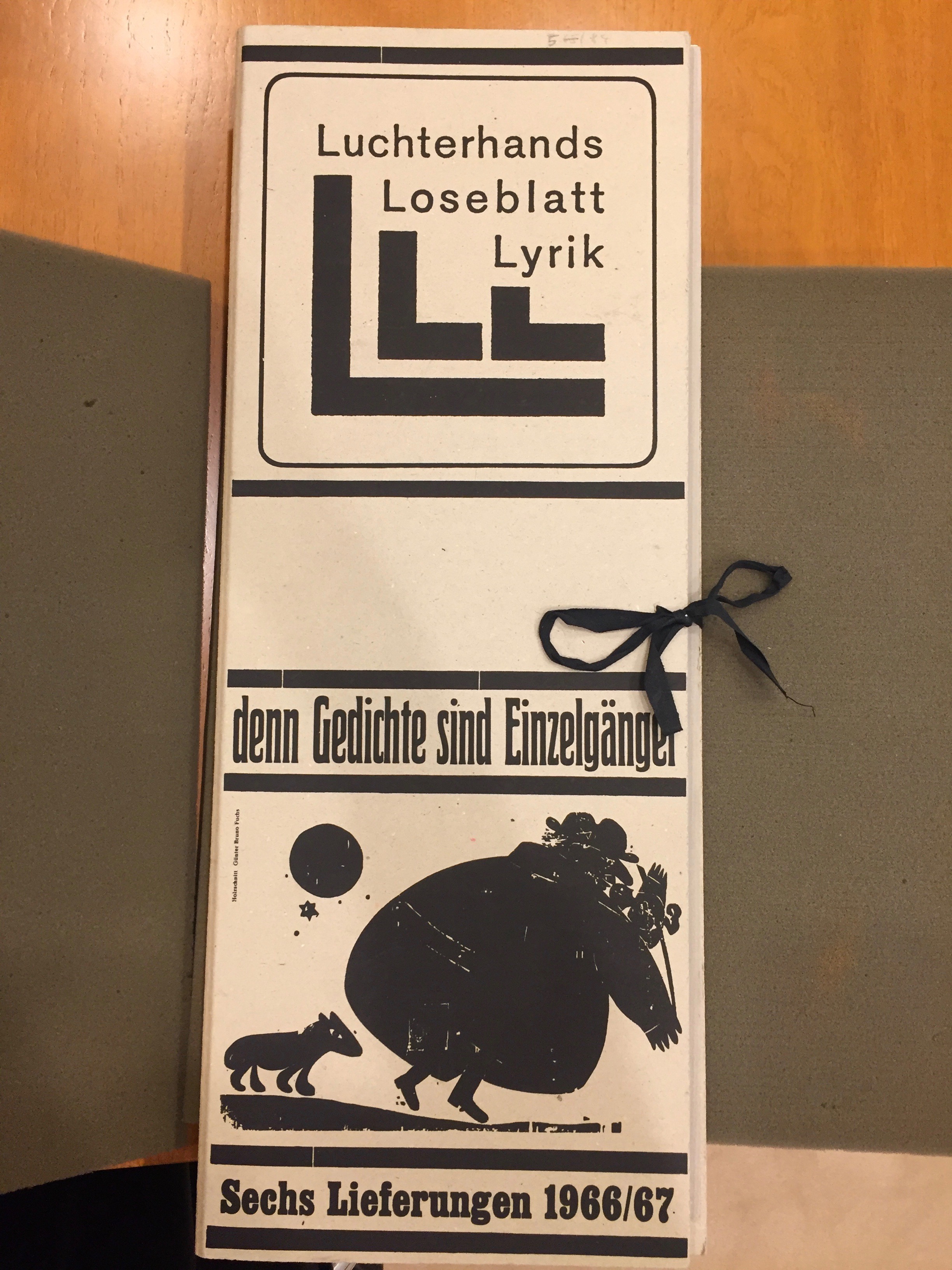Luchterhands Loseblatt Lyrik
The Luchterhand publisher launched their new poetry series Luchterhands Loseblatt Lyrik in 1966 under the direction of Günter Grass, Elisabeth Borchers, and Klaus Roehler, who would compile special editions of contemporary lyric poetry on loose sheets of unusually formatted paper, each poem or collection featuring distinctive typography and imagery. According to Grass, these works served multiple functions as “Gedichte zum Andiewandpinnen”(poems to be pinned on walls), “Gedichte zum Tauschen Sammeln Verschenken” (“poems for exchanging, collecting, gifting), or poems that could become true “Volksaktien” (people’s shares), implying a democratic model and aesthetic sensibility.[1] While the first issue presented poetry by contemporary authors from both West and East Germany, the editions would become even more politically engaged, responding to issues such as the Greek military junta (issue 8), the reactionary protest against the West student movement of 21 February 1969 (issue 10), the Prague Spring (issue 13), or the Nigerian civil war and famine (issue 15). The collection thus included not only German authors but also translations of poetry from these different regions and cultural contexts. While adopting a highly polished and innovative literary and aesthetic mode, the Luchterhands Loseblatt Lyrik even circulated in and overlapped with counter-cultural circles that produced the much more crude, radical, and cheaply produced periodicals and other underground publications. While in 1968, the subscriptions to the series of lyrical poetry reached its peak, the publisher was forced to announce the end of the project in 1970 due to financial issues.[2]
